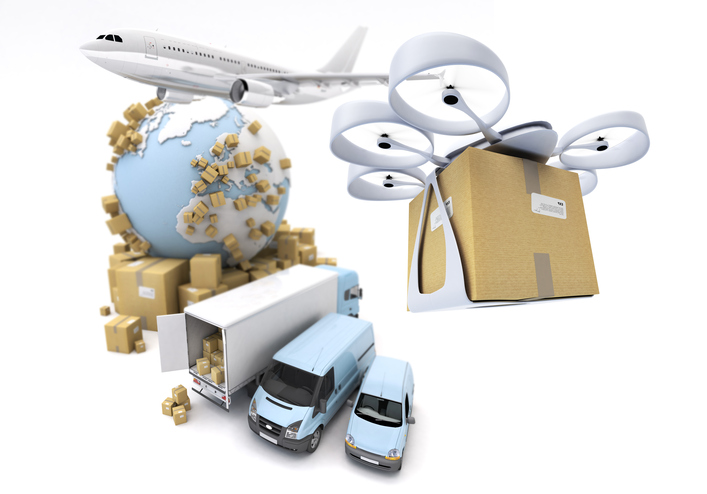
Admittedly, the idea of drones delivering packages is pretty neat. You order something small off of Amazon, wait a bit, and then see a drone touching down with a package on your front lawn? Welcome to the future!
But wow-factor aside, is a drone-delivery-filled future any better than the truck-based system we enjoy today? Unsurprisingly, there are a number of factors to consider here, but there are a lot of reasons why drones aren’t a useful alternative to the trucking industry.
Here’s a breakdown of the truck vs. drones debate, as things stand today.
The Case for Drones: They’re Quicker and Slightly More Efficient in Some Cases
Being so much tinier than a big truck, you might expect that drones are more environmentally friendly. However, drones have the disadvantage of needing to stay up in the air, which is quite demanding from an energy perspective. Still, they do outperform trucks in some instances. For short trips, and trips with few planned stops, they often have lower energy usage than a delivery truck or van. For deliveries in cities, then, or transportation of a small package that must arrive to a nearby destination as quickly as possible, it might well be best to employ the use of a drone to get the goods from Point A to Point B.

Why Grads of Dispatcher Schools Aren’t Worried: Trucks Are More Economical & Practical
As things stand, drones might seem cool, but they aren’t a replacement for how deliveries are done. With last-mile delivery, a truck might carry a great many objects as part of its cargo, including many that are quite large. For drones, delivering many items in one tip—especially if those items are big—just isn’t an option at the moment. A truck’s larger size also allows it to store much more energy, meaning it can go for long distances without stopping. Finally, there’s little risk of an errant ball or Frisbee taking out a truck, and the same can’t be said for drones.
Graduates of dispatcher schools will likely understand that these properties allow trucks to serve as a much more economical option for most deliveries. Both in terms of efficiency and in terms of reliability, trucks offer the smarter option.

Graduates of Dispatch Courses Might Still Get to Work With Drones Someday
Just because drones aren’t ideal for most shipping situations doesn’t mean that they can’t offer some benefits for dispatchers and trucking companies. While drones likely won’t and shouldn’t replace trucks as a primary method of transporting goods, they could well become an important part of a hybrid fleet.
In other words, while time will tell how this new technology holds up, it’s not impossible that your career after your dispatch course could one day involve coordinating both truck and drone deliveries. Forward-thinking fleet owners might decide to employ both options for different deliveries, and the scheduling, tracking, and planning of loads for both kinds of vehicles will take some careful consideration.
Do you want to learn more about the future of dispatching and logistics?
Start your career path with Automotive Training Centres’ dispatching program in Toronto!

